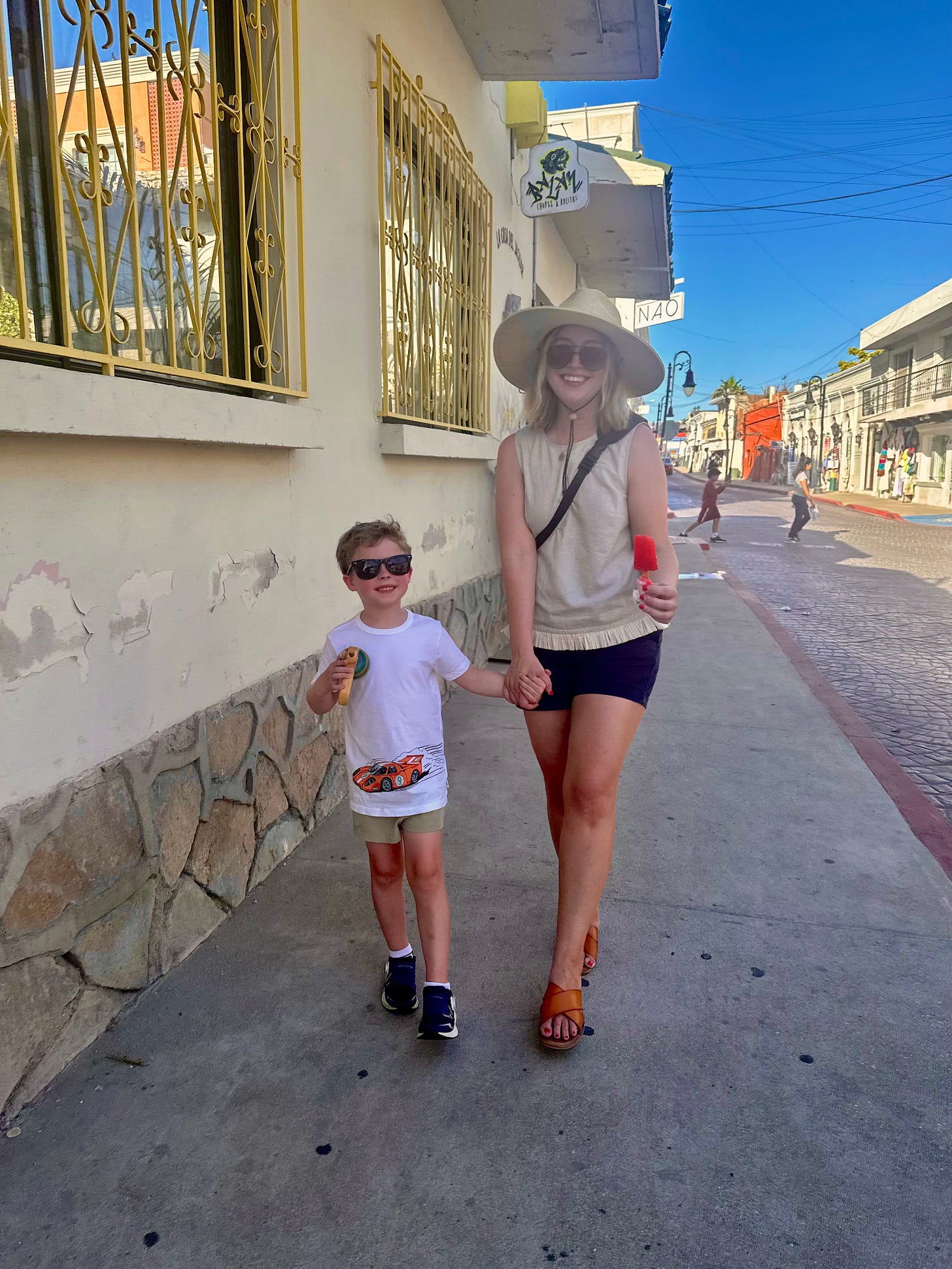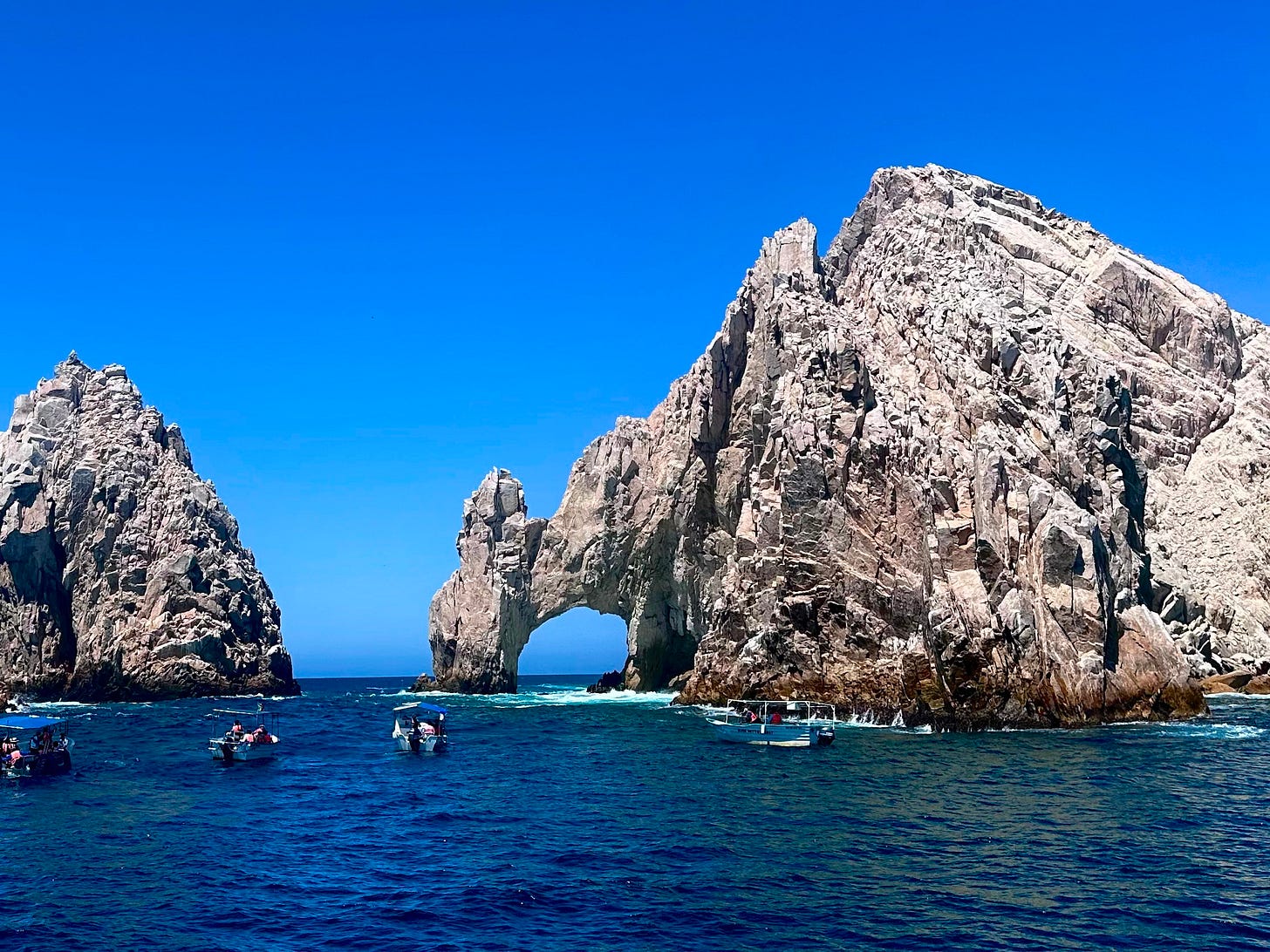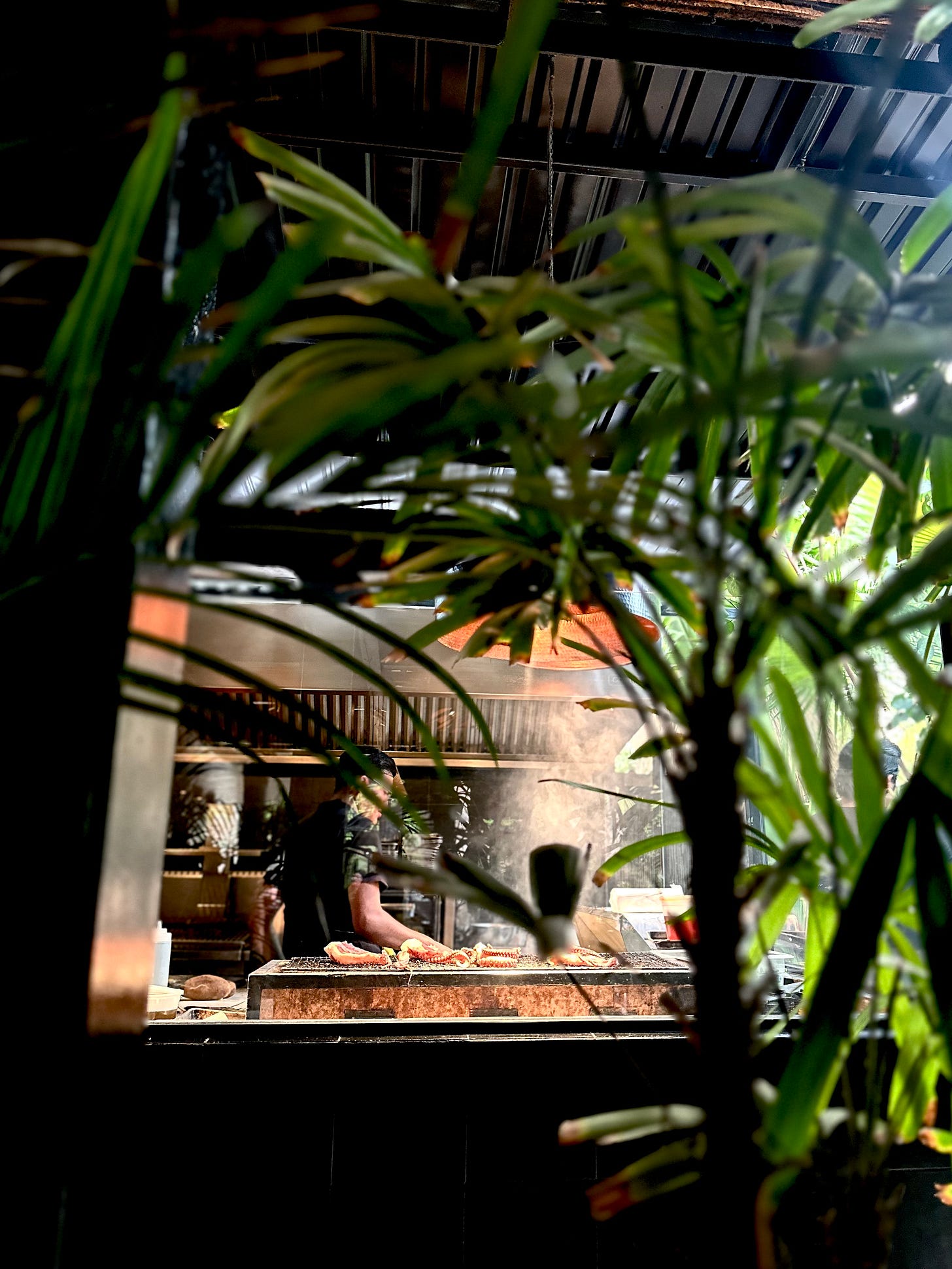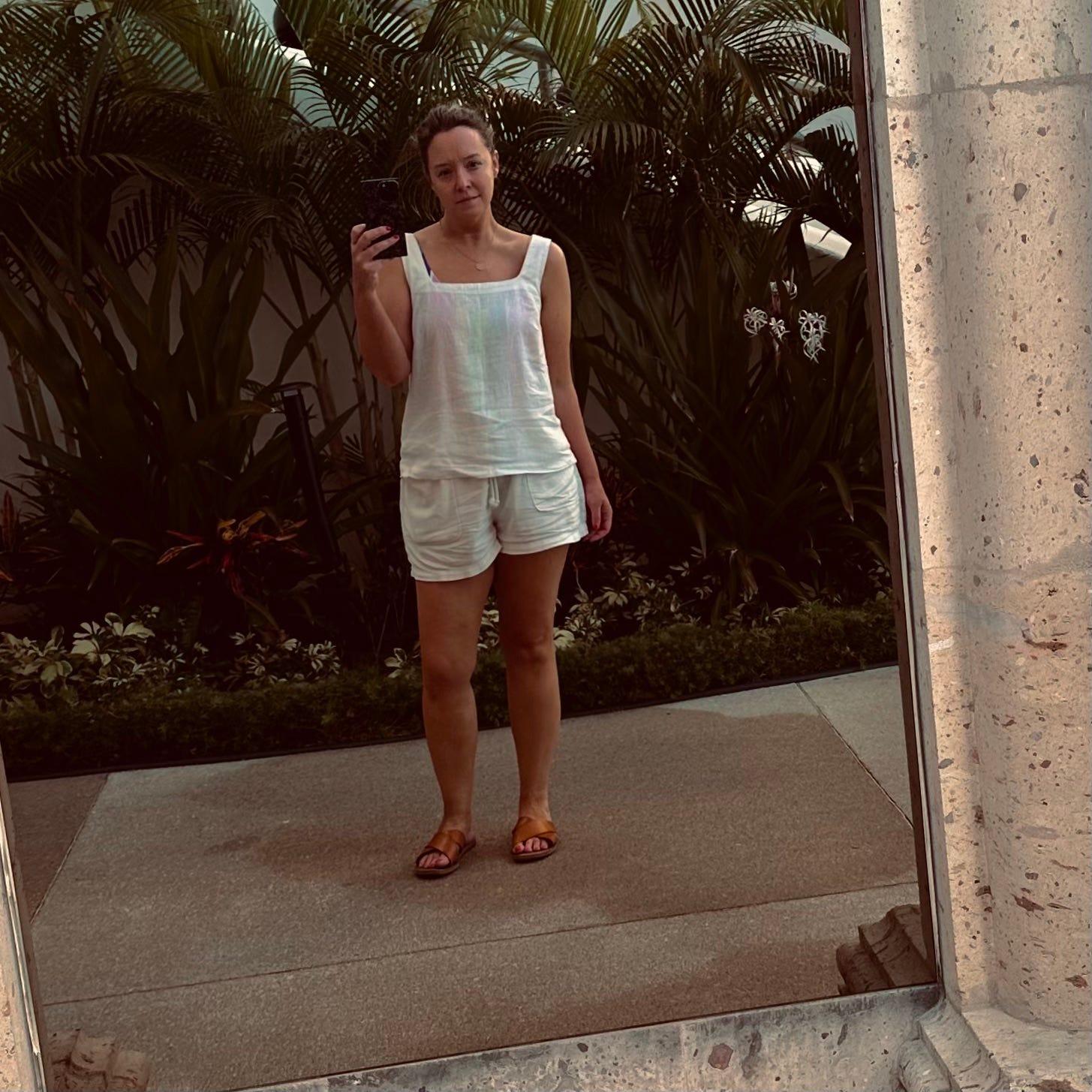Dispatches from Los Cabos
Americans are the problem. Also, the sky is blue.
In the early days of colonial ransacking, the remote nature of Baja California Sur was a sort of crude protection for its indigenous inhabitants — a buffer, though not an impermeable one. Cortez still came. The missionaries came. The diseases came. And like any good imperialist horror story, flags were planted in places no one asked for. But Baja’s isolation meant that, for a while, the bad news arrived a little slower.
Now, it seems, the pendulum has swung back. Tourists flood the so-called “aquarium of the world,” dragging with them money (good), emissions (bad), and an astounding inability to pronounce gracias (predictable, since 56% of Cabo’s tourists are Americans).
I just spent five nights in San José del Cabo, which, if you don’t know, is Cabo San Lucas’ older, better-dressed, gallery-hopping sister. I wasn’t expecting anything too complicated. It’s a vacation town, and we were bringing our kindergartener along for his first passport stamp. A little sun, some overpriced ceviche, a pool where someone brings you little umbrella drinks — no illusions about what this was.
And yet, I’ve always believed travel shouldn’t be easy. It should press on you, even if only in small, uncomfortable ways. Learn a few phrases. Eat the thing you don’t recognize. Rent a car. Talk to people whose lives look nothing like yours, and — this part’s critical — resist the compulsion to convert them to your way of thinking. That’s the whole point, isn’t it? To be reminded you’re not the center of anything. I’m not saying we don’t deserve a break now and then, a few days of sanctioned gluttony and indifference. But that, I believe, is why we invented Florida.
So there I am at Los Cabos International Airport, standing in line for a coffee with the other 56%. In front of me: a sunburnt, over-served couple. He’s got his hand firmly on her backside, murmuring something that makes her shriek-laugh-chortle while she orders two venti Americanos in English and tries to scan her Starbucks app. The scandal ensues when she’s informed the app reader is currently not working. The horror. The young woman behind the counter — professional, bilingual, unimpressed — took it like someone who’s seen this show’s reruns a million times before.
A few minutes later, another group of Americans is arguing, loudly and in English, about who got the wrong donut. I pick up my coffee and desperately want to lean across the counter and say, Estás haciendo un gran trabajo. Lo siento por ellos. But I don’t. Not because I can’t — I have just enough Spanish to manage it, plus a phone that can translate anything I can’t — but because, frankly, I am too embarrassed. I mumble a quick gracias, avoid eye contact, and scramble out of there so she won’t have to look at another one of us for a while.
It’s not fun to be an American abroad these days. Or at home, for that matter. It stings to be reminded that the world often sees us as arrogant, oblivious, and entitled — and worse when you realize how often we confirm it. This week, while flipping through international news in our hotel room, my husband paused on a segment about Israel and Iran. “It’s less terrible watching this when we’re not in America,” he said. “We can pretend it’s not us this way.”
And honestly? He’s not wrong.
Because in a lot of ways, it is us. We’re the ones too loud in the coffee line. The ones who expect signs to be in English, receipts to be in dollars, our Starbucks stars to always work internationally like some kind of imperial birthright. Even in a place like Los Cabos, where the entire economy is built on the tourism machine, you can feel the imbalance. The signs are bilingual here, but when you land back in the international terminal in Houston or Dallas or wherever you crawled out of, it’s English only, amigo. Figure it out.
And what gnaws at me most is how few of us even notice. How few of us are aware of the quiet, unspoken weight we drop into other people’s homes, demanding the comforts of our own while offering nothing in return but a gratuity and a Yelp review. There are moments on these trips — watching a server deflect another loud demand in broken English, seeing a shopkeeper gently correct a mispronounced baños for the sixth time in an hour — when I feel an overwhelming urge to apologize on behalf of an entire country. To sink so far into someone else’s world that I might, for a little while, forget my own. Not out of shame, exactly, but in some futile attempt to atone for a thousand small trespasses. To be a better guest. To be less of a reminder.
And maybe that’s why I keep traveling. Not to escape America but to see it from the outside. To gather evidence against myself. To sit with the discomfort of being both the problem and the person who wants so badly not to be. Because carrying that awareness — noticing, caring, letting yourself be unsettled — is its own small, defiant act. It’s not enough, of course. It won’t undo the damage, won’t reverse the stereotype, won’t earn you a medal from the Department of Humility. But it might make you a little quieter in the coffee line. A little braver with your gracias. A little less of a walking, sunburnt cliché.
And in a world built to reward indifference, that’s a start.







10000%